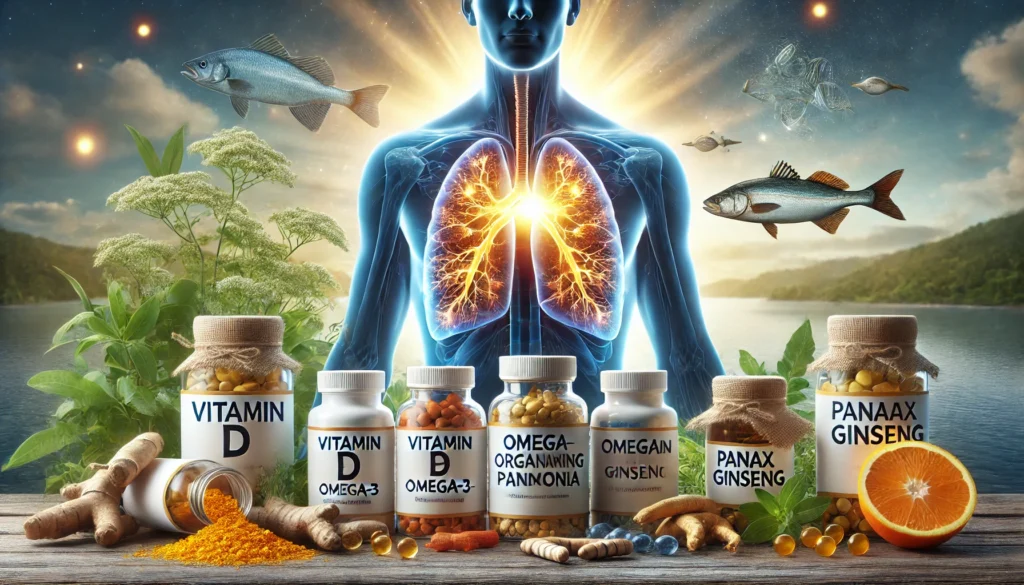Description
A type of interstitial lung illness called cryptogenic organizing pneumonia (COP) typically affects the tiny airways and air sacs in the lungs. The alveolar aperture and bronchioles become blocked by organized tissue, which is how this illness is identified. COP constitutes the diagnosis of exclusion, meaning it must be ruled out before the presence of other potential causes can be determined. Inflammation of the air sacs and narrow airways in the lungs is a hallmark of COP, which causes breathing problems and flu-like symptoms. It is not caused by an infection, but if it is not treated, it can result in serious lung damage.
Although the precise etiology of COP is unknown, it has been linked to a number of conditions, including respiratory infections, exposure to specific birds or chemicals, radiation therapy, organ transplantation, some drugs, lung cancer, lung abscesses, and lymphoma. With no discernible gender inclination, COP is more prevalent in those between the ages of 50 and 60.
You May Also Like:
Hypogammaglobulinemia: Description, Causes, and Treatment Protocol
Chronic autoimmune urticaria: Description, Causes, and Treatment Protocol
Cryptogenic Organizing Pneumonia (COP): Description, Causes, and Treatment Protocol is an original (MedNewsPedia) article.
Possible Causes
Although the specific causation of COP is still largely unknown, a number of variables and circumstances have been linked to its emergence, including the following: –
Infections: Viruses or bacteria that affect the respiratory system have been suggested as potential COP triggers. This correlation, however, is not well supported, and COP is often not contagious.
Autoimmune Disorders: COP may have an autoimmune component, as evidenced by some cases’ associations with autoimmune conditions like systemic lupus erythematosus, rheumatoid arthritis, and Sjögren’s syndrome.
Medications: Some drugs, like amiodarone, can produce medication-induced organizing pneumonia, which simulates COP but can go away when the drug is stopped.
Genetic Factors: Some people who have a family record of lung problems may be at an increased risk, suggesting that COP may have a hereditary component.
Environmental Factors: Although scientific evidence is sparse, exposure to environmental pollutants, dust, and fumes at work or home may facilitate the onset of COP.

Exacerbating and Mitigating Factors
The symptoms and development of COP can be exacerbated or slowed down by a number of causes. The following are the COP aggravating factors: –
Infections: COP symptoms may worsen if there are concurrent respiratory infections.
Smoking: Smoking remains an established risk indicator that can make COP symptoms worse.
Occupational Exposures: Persistent contact with irritants or poisons in the environment can make COP worse.
The following are COP mitigating factors: –
Early Diagnosis: Early detection and treatment may prevent the progression of the disease.
Smoking Cessation: Patients with COP may experience a markedly better prognosis after quitting smoking.
Treatment Compliance: Effective COP management depends on adherence to treatment regimens.
Standard Treatment Protocol
Relieving symptoms, enhancing lung function, and halting the course of the disease are the targets of COP treatment. An overview of the typical treatment strategy is provided below: –
Corticosteroid Therapy: These include: –
Prednisone
The most used corticosteroid, which is frequently started at a high dose (like 1 mg/kg/day) and then gradually decreases when symptoms become better.
Other corticosteroids
Other corticosteroids, including methylprednisolone, may be utilized in specific situations.
Duration of Treatment: Depending on the clinical response, corticosteroid medication is often continued for many months (for instance, 6–12 months) or more.
Monitoring: To evaluate treatment response and change drugs as necessary, regular follow-up meetings with healthcare professionals are crucial.
Potential Side Effects: Weight gain, mood swings, osteoporosis, and an increased propensity for infections are all potential side effects of corticosteroid medication.

Treatment Options
To effectively manage COP, a variety of therapeutic strategies and adjunct medications may be taken into account alongside corticosteroids. These treatments could be used as an alternative to standard care or to supplement it. The following are some examples of such therapeutic options: –
Prescription Medications: These are as follows: –
Antibiotics
Sometimes doctors will give antibiotics to treat secondary infections or prevent bacterial infections.
Immunosuppressive Agents
Immunosuppressive medications like mycophenolate or azathioprine might be used when corticosteroids alone are inadequate.
Anti-fibrotic Agents
The FDA-approved medications pirfenidone and nintedanib, which are used to treat IPF, have demonstrated potential in the treatment of COP.
Over-the-Counter Formulations: These include the following: –
Cough Suppressants
Cough suppressants available over the counter could help with chronic coughing.

Pain Relievers
Acetaminophen and other over-the-counter painkillers can assist in alleviating chest pain or discomfort.
Nutritional Supplements: Nutritional supplements can assist with some elements of COP, even though they are not the main treatment for the condition. For example, they can boost the immune system, maintain general health, and lessen the possibility of adverse effects from drugs like corticosteroids. In a COP management plan, the following dietary supplements might be taken into account: –
Antioxidants
Vitamins C and E, which are antioxidants, may aid in preventing inflammation and oxidative stress in lung tissue. Antioxidant-rich foods and supplements, if prescribed by a healthcare professional, may be helpful for COP patients.
Vitamin D
Long-term usage of steroids can cause osteoporosis, and vitamin D is essential for bone health. Getting enough vitamin D helps maintain bone health and lower the possibility of fractures. To determine the right amount, vitamin D supplementation ought to be done under physician supervision.
Calcium
Calcium is necessary for strong, dense bones. Similar to vitamin D, calcium supplements may be used to combat the effects of corticosteroid medication that weakens bones. Again, a medical professional should decide on the dosage.
Multivitamins and Minerals
Patients with COP may benefit from taking an appropriate multivitamin and mineral supplement, especially if their nutritional intake is hampered by signs like appetite loss or weight loss.
Omega-3 Fatty Acids
Fish oil supplements contain omega-3 fatty acids, which have anti-inflammatory qualities and may help lessen lung inflammation in patients having COP. They could be viewed as a secondary form of therapy. For the right dosage, patients should speak with a healthcare professional.
Enhance your lung recovery with Omega-3—Feel the Relief, Shop Omega-3 Now!

Protein Supplements
Weight loss and muscle wasting can result from COP. Taking protein supplements can enhance overall nutrition and aid in maintaining muscle mass. The diet should also include high-protein foods including fish, lean meats, dairy items, and legumes.
N-acetylcysteine (NAC)
Although NAC is not a conventional dietary supplement, it acts as a mucolytic agent which may help in decreasing mucus discharges, making it simpler to cleanse the airways. As a component of COP management, some healthcare professionals could advise NAC.
Glutamine
The immune system is supported by the amino acid glutamine, which may also enhance general health. Dairy products, beef, and fish are some examples of foods that include it. The requirement for supplements can be determined by a healthcare professional.
Herbal Remedies: Herbal treatments for COP have not always been proven to be effective at treating the condition and may interact negatively with pharmaceuticals. Following are several herbal medicines that have been researched, however, their usage should be supervised by a medical expert: –
Ginseng (Panax ginseng)
The anti-inflammatory and antioxidant capabilities of ginseng is well established. Studies have shown that it may strengthen the immune system and improve lung function. To establish its effectiveness for COP, more study is necessary.
Licorice Root (Glycyrrhiza glabra)
Licorice root possesses anti-inflammatory qualities and can ease respiratory issues. It is offered in a variety of forms, including supplements and teas. Licorice root should only be utilized under medical guidance because it can interact with some drugs and cause adverse effects like raised blood pressure.
Eucalyptus (Eucalyptus globulus)
The use of eucalyptus tea or oil can lessen coughing and relieve respiratory problems. Mucus from the respiratory tract may be cleared with the use of its possible mucolytic activities. However, since some people could be allergic to eucalyptus, excessive amounts shouldn’t be consumed.
Oregano (Origanum vulgare)
Compounds in oregano may have anti-inflammatory and antibacterial effects. It can be used in cooking or for making herbal tea. While it might have some respiratory advantages, it cannot replace medical care.
Turmeric (Curcuma longa)
The anti-inflammatory and antioxidant compound curcumin is found in turmeric. Curcumin may help decrease pulmonary inflammation, according to certain research. Both dietary and supplement forms of turmeric are available.
Promote respiratory healing and reduce symptoms with Turmeric—Recover Naturally, Shop Turmeric Now!

Thyme (Thymus vulgaris)
A fragrant herb called thyme may have minor anti-inflammatory and antibacterial properties. It is occasionally used as a spice or in herbal drinks. It is not the main treatment for COP, despite the fact that it could provide some comfort from respiratory symptoms.
Mullein (Verbascum thapsus)
Mullein has long been used to treat respiratory conditions like coughing and congestion. It can be taken as a supplement or in the form of herbal tea. Nevertheless, there is little scientific data to back up its usage for COP.
However, it is crucial to stress that traditional medical therapy for COP, which normally entails corticosteroids and, in certain cases, immunosuppressive medications, should not be replaced by herbal therapies. Before utilizing herbal medicines, people should always speak to their doctor, particularly if they have been already on medication, suffer from underlying health issues, are pregnant, or are nursing a baby.
Conclusion
Cryptogenic Organizing Pneumonia (COP) is a rare and challenging interstitial lung disease characterized by inflammation and tissue organization within the small airways and alveoli. Although the exact causes remain uncertain, contributing factors such as infections, autoimmune disorders, and environmental exposures are recognized. COP’s symptoms, which include respiratory distress and flu-like conditions, require careful diagnostic evaluation to distinguish it from other pulmonary disorders.
Treatment for COP focuses on alleviating symptoms, improving lung function, and preventing disease progression. Corticosteroid therapy, particularly prednisone, remains the cornerstone of treatment, often requiring long-term use and regular monitoring to mitigate potential side effects. Adjunctive therapies, such as immunosuppressants, antifibrotic agents, and nutritional supplements, may complement the treatment plan and support overall health.
Herbal remedies and natural supplements offer potential anti-inflammatory and immune-boosting benefits, but they should only be used under medical guidance to avoid interactions or contraindications with standard treatments. Lifestyle modifications, including smoking cessation and stress management, can also significantly improve outcomes.

Additional resources for further reference
https://www.ncbi.nlm.nih.gov/books/NBK507874
https://www.thieme-connect.com/products/ejournals/pdf/10.1055/s-0032-1325157.pdf
https://erj.ersjournals.com/content/28/2/422
https://www.frontiersin.org/articles/10.3389/fmed.2023.1146782/full
Important Note: The information contained in this article is for general informational purposes only, and should not be construed as health or medical advice, nor is it intended to diagnose, prevent, treat, or cure any disease or health condition. Before embarking on any diet, fitness regimen, or program of nutritional supplementation, it is advisable to consult your healthcare professional in order to determine its safety and probable efficacy in terms of your individual state of health.
Regarding Nutritional Supplements Or Other Non-Prescription Health Products: If any nutritional supplements or other non-prescription health products are mentioned in the foregoing article, any claims or statements made about them have not been evaluated by the U.S. Food and Drug Administration, and such nutritional supplements or other health products are not intended to diagnose, treat, cure, or prevent any disease.


